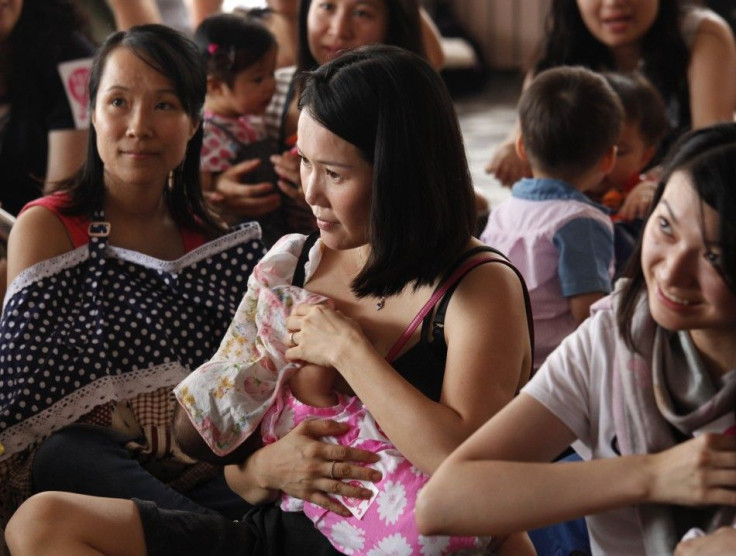Danger of Water Intoxication to Babies Highlighted in 6-month-old Baby’s Case

The danger of water intoxication among babies was highlighted in a case of a 6-month-old baby girl who suffered seizures after her mother gave her cordial as alternative for formula.
The mother said that formula milk became too expensive for her that she had to alternately feed the baby with cordial.
The baby's case is called "water intoxication", Susan Moloney, a paediatrician with the Royal Australasian College of Physicians said.
Water intoxication happens when a child, even adults, drank too much water but is consuming too little nutrients.
''When you dilute your body and get water intoxication your brain swells, and that's why you have seizures,'' Moloney said.
Water intoxication is when too much water dilutes sodium in the blood and flushes it out of the body, thus altering brain activity, which can lead to a seizure, according to Johns Hopkins Children's Center.
"Infants under 1 year of age may be more prone to these types of seizures than older children because a young infant's diet does not contain enough food sources to replenish the lost sodium. Also, an infant's immature kidneys cannot flush out excess water fast enough, causing a dangerous buildup of water in the body," Johns Hopkins wrote.
Symptoms of water intoxication in an infant include:
- changes in mental status, i.e., unusual irritability or drowsiness
- low body temperature, usually 97 degrees or less
- facial swelling or puffiness
- seizures
The six-month-old baby's case was the first recorded case in Australia, but Paediatric registrar Rakel Hansen said that water intoxication was 'epidemic' during the 1990s in the USA, due to poverty and poor social services.
Moloney said that poverty may have forced mothers to feed their children with improper food choices. Hence, she still recommends breastfeeding for babies.
Nicole Bridges, a volunteer breastfeeding counsellor and spokeswoman for the Australian Breastfeeding Association, said that healthcare professionals were probably the ones to blame why more mothers stop breastfeeding their babies at about six-weeks.
''We know that 90 per cent of women initiate breastfeeding, but we really come unstuck, particularly in these crucial points such as the six-week mark. The information is either not being communicated very well to parents or, what I think is more likely, there is pressure from families, from the baby food industry and from healthcare professionals to start supplementing with formula from before six months of age.''
The case of the 6-month-old baby and water intoxication is explained in depth in the paper titled Hyponatraemic Seizure in a 6-month-old Infant Due to Water Intoxication published by the Journal of Paediatrics and Child Health.





















